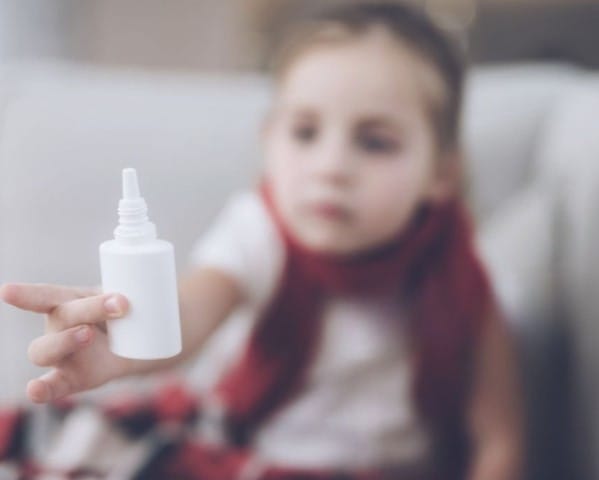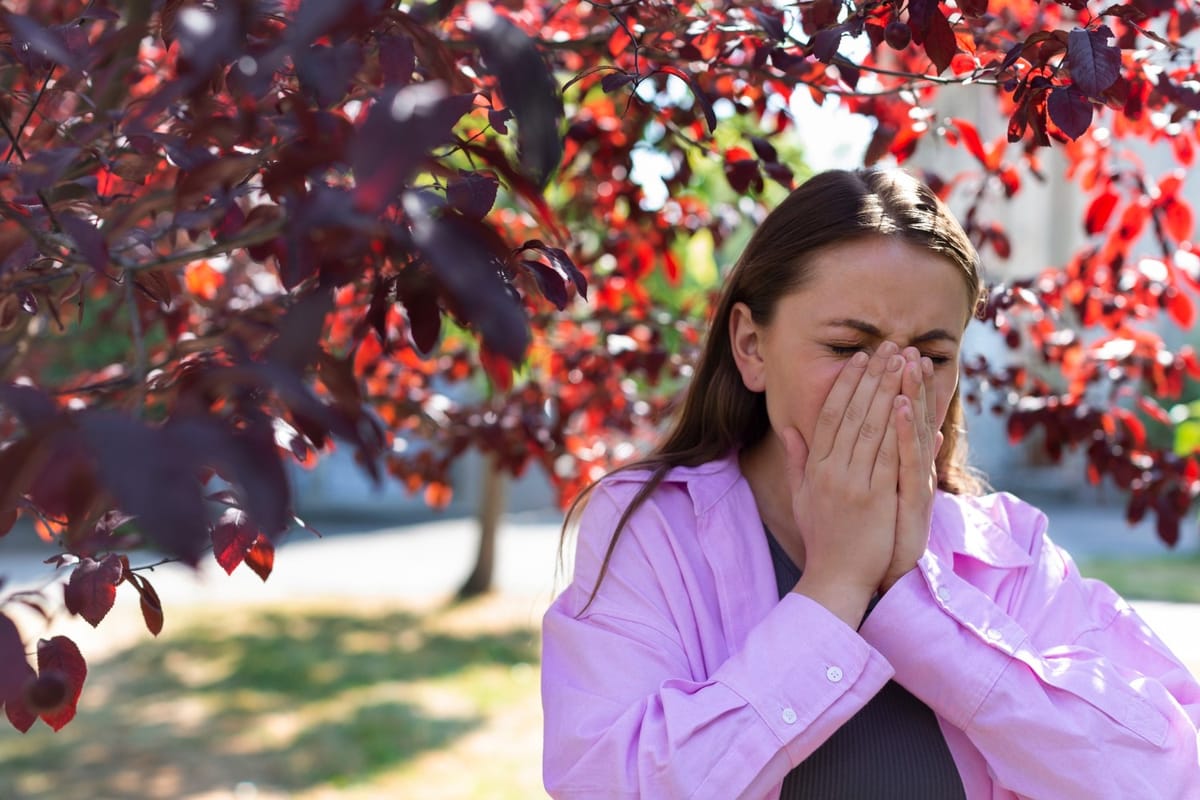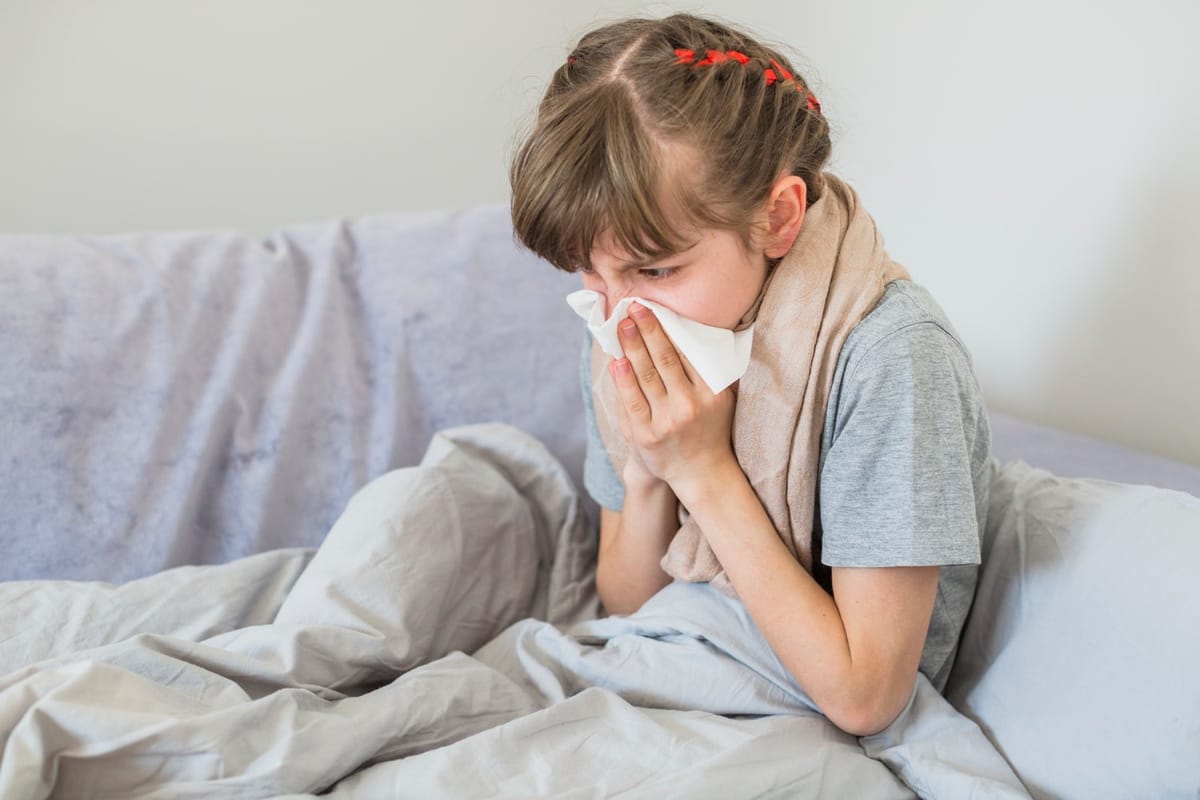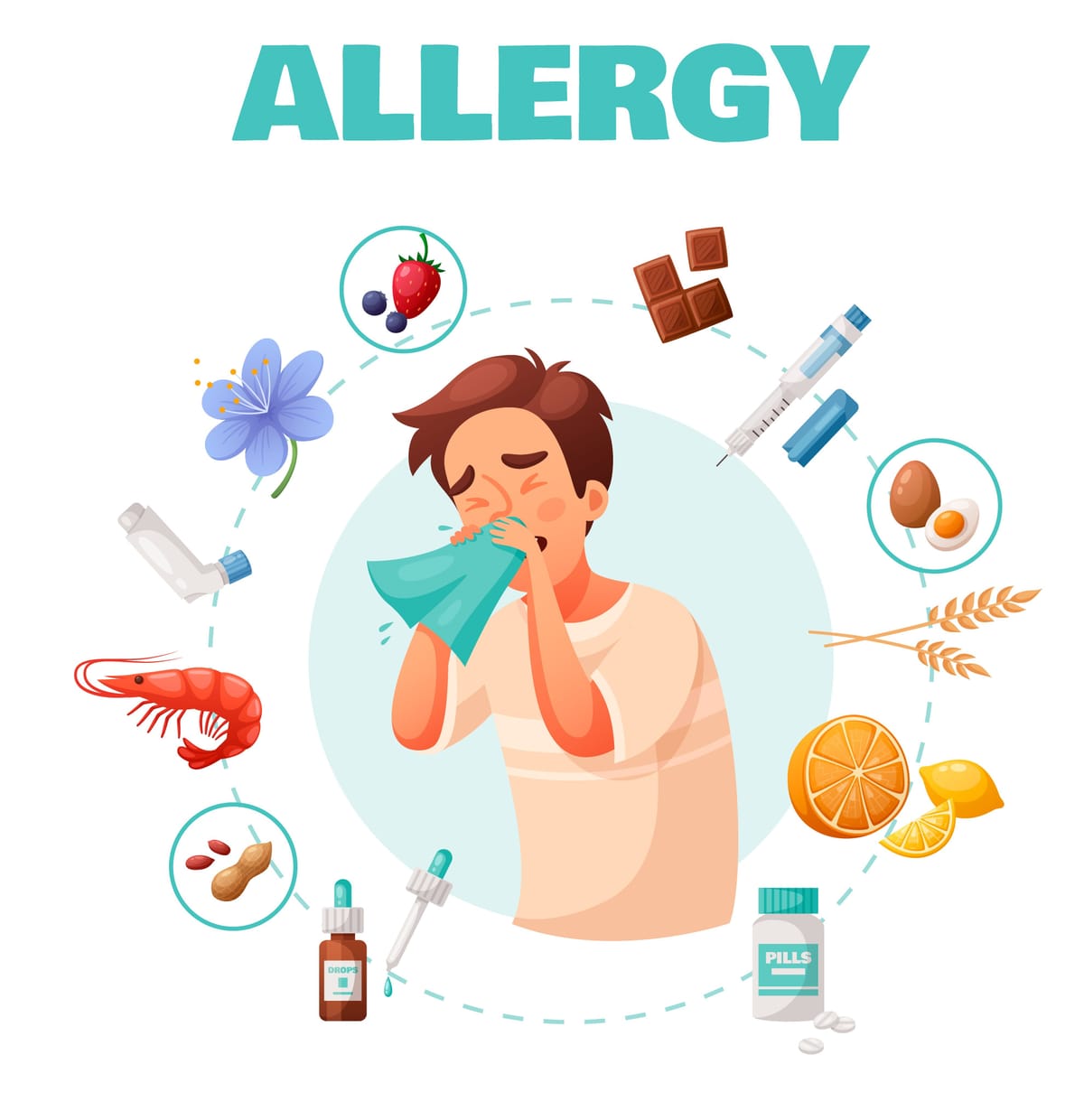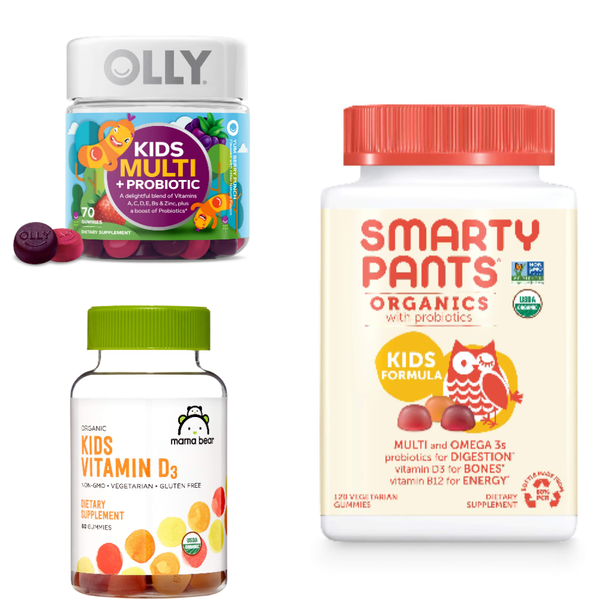Allergies can be a significant discomfort for children, affecting their playtime, school, and overall well-being. As a parent, it's crucial to know how to choose the best allergy medicine for your child to ensure they can enjoy their childhood without the constant annoyance of allergy symptoms. This article will guide you through the process of selecting the right allergy medication for your little one.
Key Takeaways:
- Understand the different types of allergy medications and their purposes.
- Learn how to identify your child's allergy symptoms and select the appropriate treatment.
- Know when to consult a pediatric allergist for personalized allergy management.
Recognizing Your Child's Allergy Symptoms
Before diving into the vast sea of allergy medications, it's essential to recognize your child's symptoms. Allergic reactions in children can manifest as itchy eyes, runny noses, scratchy throat, or more severe symptoms like difficulty breathing. Seasonal allergy symptoms often include sneezing, nasal congestion, and watery eyes, primarily due to environmental allergens such as tree pollen, dust mites, and pet dander.
Understanding Allergy Medications
Allergy medications come in various forms, including oral antihistamines, steroid nasal sprays, and antihistamine nasal sprays. Each type of medication works differently to control symptoms. Oral antihistamines are often the first line of defense against allergy symptoms, while nasal sprays can be more effective for nasal congestion and sinus infections.
The Role of Antihistamines
Antihistamines work by blocking histamine, a substance your child's immune system produces during an allergic reaction. OTC antihistamines are widely available and can relieve allergy symptoms such as itchy nose and eyes. However, some may cause drowsiness, so it's important to choose non-sedating options for young kids.
Steroid Nasal Sprays and Inflammation
Steroid nasal sprays are designed to reduce inflammation in the nasal passages, offering relief from stuffy nose and sinus pressure. Unlike antihistamines, they don't provide immediate relief but can be more effective when used consistently over time.
Considering Allergy Shots and Immunotherapy
For severe allergies, allergy shots or sublingual immunotherapy may be recommended. These treatments work by gradually exposing your child's immune system to the allergen, helping it become less sensitive over time. This approach is typically managed by a pediatric allergist.
Navigating Over-the-Counter Options for Children's Allergy Relief
When it comes to treating your child's allergies, the pharmacy shelves are lined with over-the-counter medications promising relief. It's essential to navigate these options with care. Over-the-counter options can be a convenient and effective way to treat allergies, but not all are suitable for children of all ages. Always check the label for age recommendations and consider liquid formulations for younger children who may have difficulty swallowing pills. The best allergy medicines for your child will be those that alleviate their specific symptoms without causing undue side effects.
Moreover, while many parents reach for oral antihistamines, don't overlook the potential of a nasal spray, especially for nasal symptoms. Intranasal steroids can be particularly effective in reducing inflammation and congestion in the nasal passages. However, it's crucial to use them correctly. A child's doctor can guide the proper technique to ensure the medication is delivered where it's needed most. Remember, the right allergy medicine should offer relief without adding to your child's discomfort.
Identifying Eye Allergies in Children
When it comes to a child's allergies, eye symptoms can be particularly telling. Red, itchy, and watery eyes often signal that your little one is reacting to an allergen. These symptoms occur when histamines are released into the bloodstream, causing blood vessels in the eyes to dilate. It's important to observe if these eye symptoms accompany other signs of allergies, as they can help pinpoint the specific allergen causing discomfort.
Explains Dr. Smith from the Nationwide Children's Hospital, "Eye allergies are often overlooked in children, but they can cause significant irritation and can be a clue to identifying the underlying allergy." If your child's symptoms include itchy eyes, especially during peak pollen seasons or after pet exposure, it's worth discussing with your child's pediatrician. They may recommend antihistamine eye drops designed for children ages three and up, which can provide relief without affecting the rest of the child's immune system.
Exploring Natural Remedies for Child's Allergy Relief
When it comes to alleviating your child's allergy symptoms, exploring natural remedies can be a gentle yet effective approach. Many parents are turning to options that complement traditional medications, aiming to reduce their child's discomfort with fewer side effects. For instance, a saline nasal rinse can help clear out pollen and other allergens from your child's nasal passages, providing relief, especially during high pollen seasons. Additionally, maintaining a clean environment by using air purifiers and keeping pets out of the child's bedroom can significantly lessen exposure to common allergens.
Moreover, some dietary adjustments have been suggested to support a child's immune system. Foods rich in omega-3 fatty acids, such as flaxseeds and walnuts, are known for their anti-inflammatory properties. While these natural remedies may offer some relief, it's crucial to discuss any new approach with your child's pediatrician. They can guide safe practices and help you understand how these methods can fit into your child's overall allergy management plan.
The Significance of a Child's Immune System in Allergy Response
When it comes to understanding your child's allergies, it's crucial to recognize the role of their immune system. A child's immune system is designed to protect them from harmful invaders, but sometimes it can mistakenly identify a harmless substance as a threat. This overreaction can lead to the child's allergy symptoms, which can range from mild to severe. By learning how the immune system functions with allergens, parents can better comprehend why certain reactions occur and how to address them.
Moreover, strengthening a child's immune system can play a part in managing their allergies. While there's no cure for allergies, certain lifestyle changes and dietary adjustments can support the immune system, potentially reducing the frequency and intensity of allergic reactions. It's always recommended to discuss these strategies with your child's pediatrician or a specialist at a nationwide children's hospital, as they can provide tailored advice to bolster your child's defenses against allergies.
Collaborating with Your Child's Doctor for Tailored Allergy Management
When your child is experiencing discomfort due to allergies, it's essential to work closely with their doctor to find the most effective treatment plan. A child's doctor has the expertise to diagnose the specific type of allergy and recommend appropriate medications or therapies. They can also guide you through the process of tracking your child's symptoms and identifying patterns, which can be invaluable in pinpointing triggers and preventing future allergic reactions.
In addition to medical treatments, your child's pediatrician can offer advice on lifestyle modifications that can alleviate your child's discomfort. This might include changes to the home environment, such as using air purifiers or hypoallergenic bedding, or dietary adjustments to avoid food allergens. Remember, each child's allergies are unique, and what works for one may not work for another. Therefore, maintaining open communication with your child's healthcare provider is key to managing their allergies effectively.
The Role of Allergen Avoidance in Managing Child's Allergies
Allergen avoidance is a proactive strategy to manage your child's allergies effectively. By identifying and minimizing contact with the substances that trigger your child's symptoms, you can significantly reduce the frequency and severity of allergic reactions. For example, if your child is allergic to dust mites, using dust-proof covers on mattresses and pillows, and washing bedding in hot water weekly can make a big difference. Similarly, for outdoor allergens like pollen, keeping windows closed during high pollen counts and changing clothes after playing outside can help.
In cases of food allergies, which can be particularly distressing, vigilance is key. Reading food labels carefully to avoid the offending allergen is essential. Nationwide Children's Hospital and other reputable institutions often provide resources and guidelines to help parents navigate the complexities of food allergies. Remember, while avoidance can be highly effective, it's important to have a plan in place for accidental exposure. This plan should be developed in consultation with your child's doctor and may include carrying emergency medication such as an epinephrine auto-injector.
The Impact of Allergies on a Child's Quality of Life
Allergies can do more than just cause a child's discomfort; they can significantly impact a child's quality of life. From disrupting sleep due to persistent nasal symptoms to affecting concentration in school, allergies can take a toll. It's crucial to address a child's symptoms holistically, considering both the physical and emotional ramifications. A child who is well-rested and free from allergy symptoms is more likely to participate actively in school and social activities.
Nationwide Children's Hospital has conducted studies showing that effective management of a child's allergies can lead to improved academic performance and overall happiness. When speaking with your child's doctor, it's beneficial to discuss not only the physical symptoms but also how the allergies are affecting your child's day-to-day life. Nasal steroids, for example, can be prescribed to reduce inflammation and improve sleep, while counseling might be recommended to help children cope with the stress of chronic allergies.
Allergy Asthma: Recognizing and Treating Respiratory Symptoms in Children
Allergy asthma is a common concern among parents, as respiratory symptoms can significantly impact a child's quality of life. If your child's allergy symptoms include wheezing, coughing, or difficulty breathing, it's vital to consult with a pediatric allergist. These symptoms can indicate allergy-induced asthma, which requires a specific treatment approach to manage both the child's immune system response and respiratory health. The allergist may recommend a combination of inhalers and allergy medications to keep symptoms under control.
It's also important to recognize that not all respiratory symptoms are due to allergy asthma. Children can exhibit the same symptoms for various reasons, such as viral infections or other respiratory conditions. Therefore, a thorough evaluation by a child's pediatrician or a specialist at a facility like Nationwide Children's Hospital is essential. They can perform tests to determine the cause of your child's symptoms and explain Dr. recommended treatment options. By understanding the root of your child's discomfort, you can choose the best course of action to help them breathe easier.
The Importance of Correct Dosage
When selecting an allergy medicine for kids, it's crucial to ensure the correct dosage based on your child's age and weight. Over-the-counter options will have dosage instructions, but for prescription medications, your child's doctor will provide specific guidance.
Consulting a Pediatric Allergist
If your child's symptoms are persistent or severe, consulting a pediatric allergist is a wise step. Allergen-specific tests can be conducted to pinpoint exact triggers and devise a personalized treatment plan for allergies. Nationwide Children's Hospital and similar institutions have experts who specialize in managing children's allergies.
Managing Seasonal Allergies
During allergy season, pollen counts can soar, exacerbating your child's symptoms. Keeping windows closed, using air purifiers, and limiting outdoor activities when pollen counts are high can help manage symptoms.
Dealing with Dust Mites and Pet Allergy
For allergies related to dust mites or pets, reducing allergen exposure is key. Encase mattresses and pillows in allergen-proof covers and wash bedding regularly in hot water. For pet allergies, consider keeping pets out of your child's bedroom and using high-efficiency particulate air (HEPA) filters.
When Symptoms Occur: Immediate Relief
For sudden allergy symptoms, having quick-relief medications like antihistamine eye drops or oral medications on hand is important. These can provide symptom relief until you can address the underlying cause or consult with your child's pediatrician.
Avoiding Overmedication
It's easy to feel overwhelmed in the allergy aisle, but it's important to avoid overmedication. Start with one medication to manage your child's symptoms and only add additional treatments if necessary, under the guidance of your child's doctor.
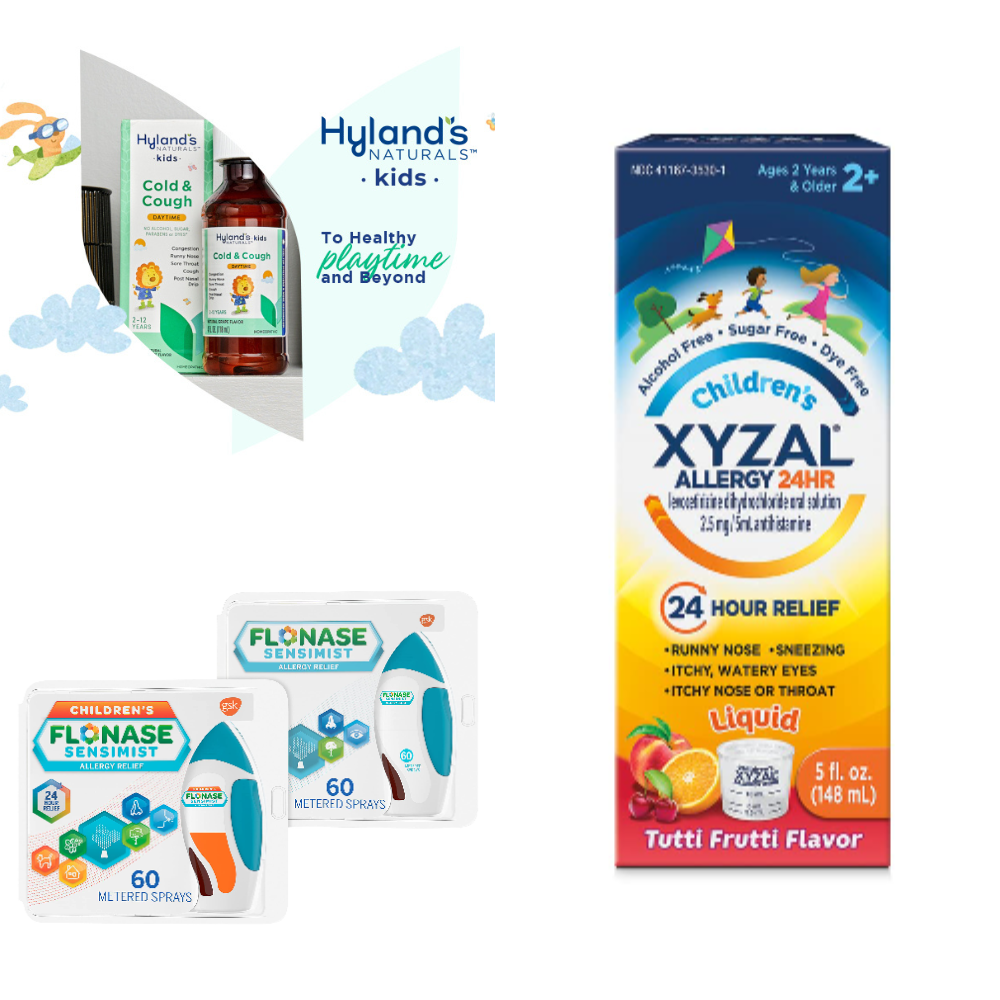
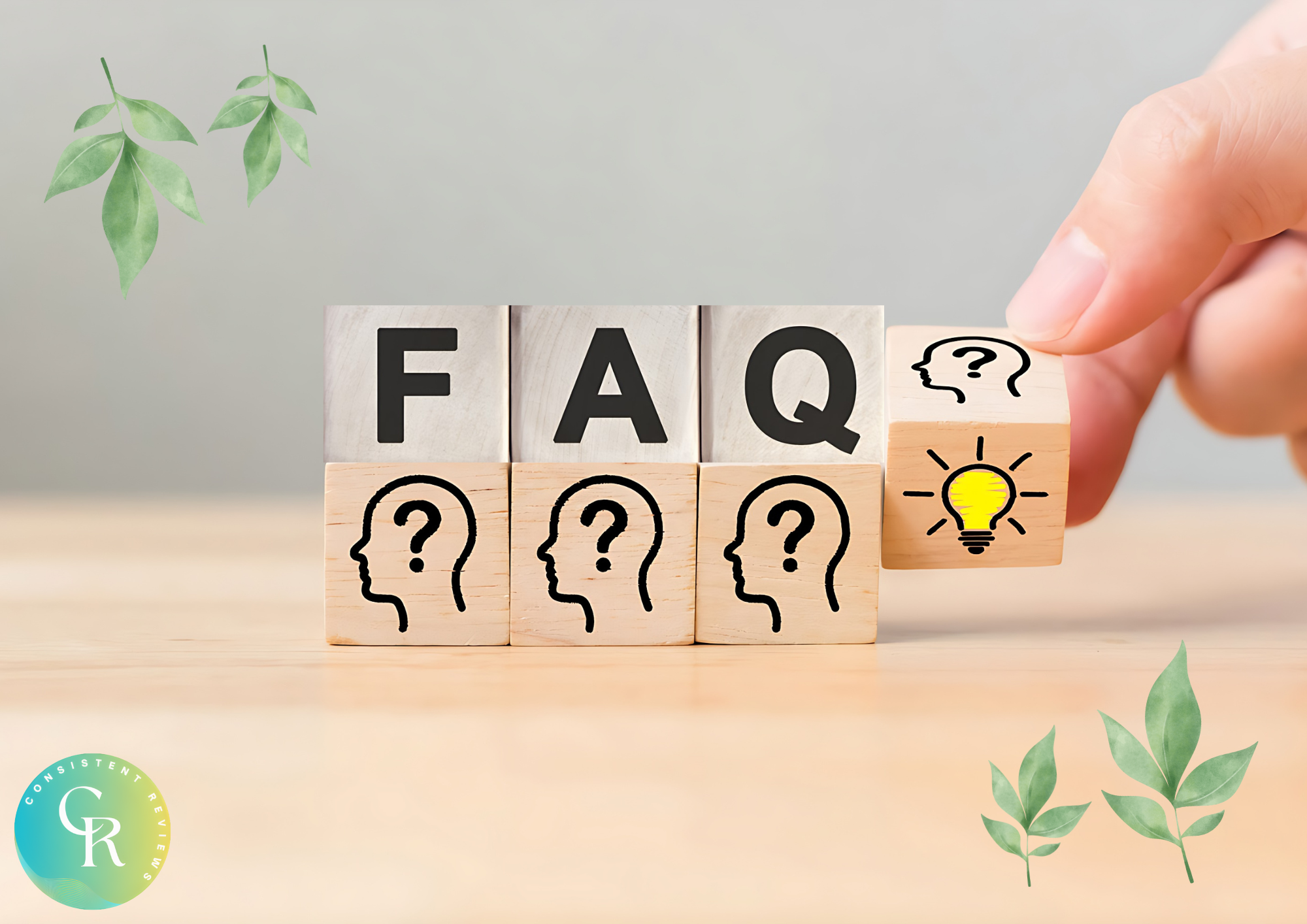
How can I tell if my child has allergies or a common cold?
Allergy symptoms, such as itchy eyes, runny nose, and sneezing, can be similar to cold symptoms. However, allergies will often occur at the same time each year and last longer than the typical cold. Allergies also don't come with fever or body aches that can accompany a cold.
Can children outgrow allergies?
Some children may outgrow certain allergies, especially food allergies, as their immune system matures. However, other allergies, like those to pollen or dust mites, may persist into adulthood. Regular check-ups with a pediatric allergist can help monitor your child's allergies over time.
Are over-the-counter allergy medications safe for children?
Many over-the-counter allergy medications are safe for children when used according to the label's instructions. However, it's always best to consult with your child's pediatrician before starting any new medication to ensure it's appropriate for their age and health status.

Choosing the best allergy medicine for your child involves understanding their symptoms, the types of allergy drugs available, and the importance of the correct dosage. Remember to manage environmental factors that contribute to allergies and consult a pediatric allergist for personalized care. With the right approach, you can help relieve your child's discomfort and control their allergy symptoms effectively.
